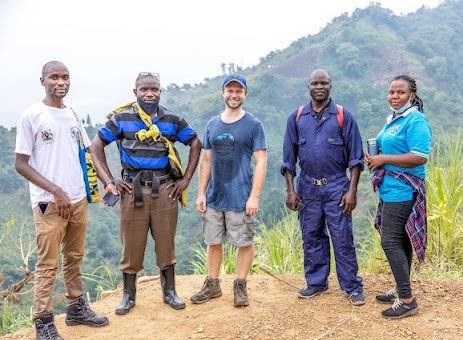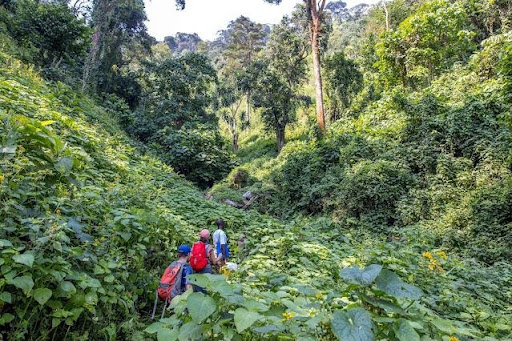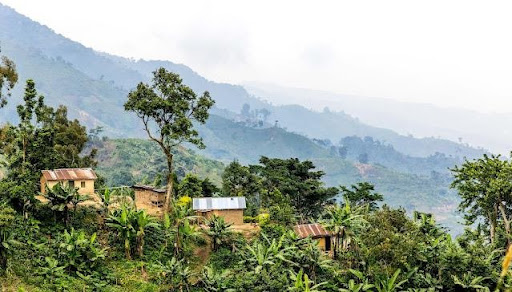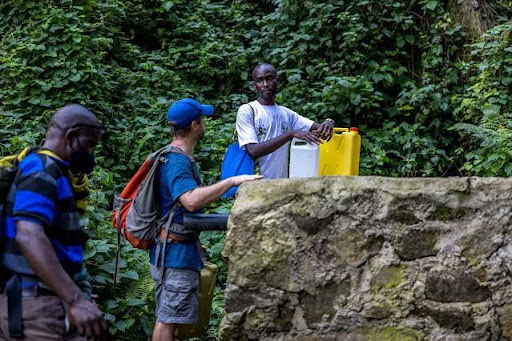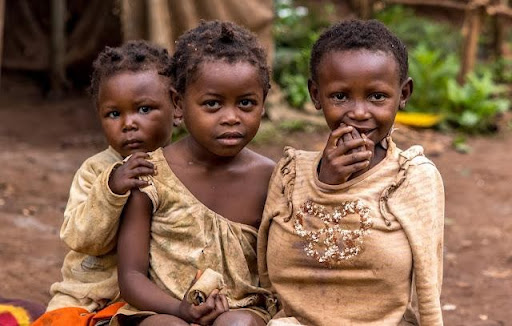When it comes to community development, it might sound easy to just find a water source, buy some land, set up a system, and think that the obvious value will lead to buy-in. But in our experience as missionaries in rural Uganda, this isn’t always the most effective approach.
When my husband and I were getting our Master of Public Health degrees at John Hopkins University, we were blessed to sit in a class taught by Dr. Carl Taylor, one of the founding fathers of International Health as an academic discipline.
Dr. Taylor grew up as a missionary kid in India and dedicated his life to service, academics, and the intersection of faith and science. Truly a remarkable man.
What I remember most from his class was a concept he taught about the triangle of actors that produce change:
The community, the government, and the outside “expert” (his word, but we could just say “outside actor”).
The community is a must, obviously. They are living the life, know the issues, have the motivation, must be convinced of the value of a new idea, and stand to benefit or to pay. Dr. Taylor used a lot of community mapping methods, involving the community gathering its own data to raise awareness of problems.
Then, the government must align to scale things up, to provide infrastructure and jobs, and to sort out policies.
Lastly, the outside actor comes in with ideas from other places–perhaps studies, innovations, fresh perspectives, training that would otherwise not be available–to catalyze change like an enzyme.
Recently, we got to see this in action.
As team leaders of the Serge team in Uganda, my husband and I had the opportunity to accompany Josh Dickenson, our team’s water engineer, to do water sampling at his newest water project. This was in Mabere, a small town in rural Uganda, near where our team is based.
As we were huffing up the steep (20% grade), narrow footpath, a three-hour climb from the last passable road, to the source in a mountain cleft at the edge of the Rwenzori National Park. We stopped to catch our breath and snap a photo.
It was then that I could see it–the very three-strand strength that Dr. Taylor had taught, playing out before us.
First, the community of Mabere started their own project. They managed to build a little dam but never got pipes in the ground. As our team began to help, the local village chairperson stayed close by, advocated for which houses needed to be served, and provided young men to carry water samples. In addition, we are very much dependent upon a local water project technician, Tembo Justus, who connects us to the community, leads, guides, and arranges.
Second, we brought along water engineers from Uganda’s Ministry of Water. They were there to certify the collection of samples and take them for testing in Fort Portal and Entebbe. They represent the government, which must certify the safety of the project. Already, our local district officials have been to the site and signed off on the plans—in fact, they are the ones that chose this particular project as a priority.
And lastly, our teammate Josh who represents the outside actor, brings in engineering expertise, raises charitable and grant funding, manages the funds’ accountability, and moves the project forward on behalf of the community and under the authority of the government.
Photos by Scott Myhre
This triple-stranded way is slow, and it can be frustrating to collaborate every step of the way with the community and the government. However, people have to be heard and understood. We have to adjust, and sometimes we have to convince.
I think that’s why we see a proliferation of projects. Outsiders come in, things feel corrupt or opaque or slow or unjust or frustrating, and then they just break off and make a private scheme.
And there are times for that.
But for the basics of public health and sanitation, for broad programs like the prevention of HIV or provision of safe deliveries and vaccines and literacy—for acting out God’s rain-on-the-just-and-unjust mercy in society, this plodding three-part approach is valuable.
If you were to follow our team in Uganda for a day, you’d see this in all that we do.
- At Christ School Bundibugyo, the parent-teacher association and the government’s Department of Education twine with our mission’s efforts.
- At the hospital, we work with our community colleagues, the government pays salaries and provides some essential drugs, and we provide other help, ongoing education, and support.
- In literacy, Bible translation, and after-school programs, we collaborate with government schools, local parents, pastors, and teachers.
- And in our nutrition program it’s the same thing–we are just one strand that strengthens what the government and community also contribute.
Being an alien and stranger (an outsider) is often disorienting and dehumanizing. We all get tired of being singled out and called names and laughed at, or being the last to know what’s really going on. And yet, that very outsider-ness is part of what we have to offer. It’s an alienation and an embrace.
We have to be different enough to generate ideas and change, and demonstrate grace–yet close enough to be heard and to love.
Our hike was a solid picture of what that can look like.
And one day, the result will be clean water for families living in very simple homes on the edge of anyone’s radar, but right in the center of God’s love.
WATCH: HOW CLEAN WATER IS SAVING LIVES IN THE NAME OF JESUS
Here at Serge, we see community development as a tangible demonstration of God’s love. Our teams partner with local churches to advance community development projects, which ties our work to the love of Jesus and places Him–not us–in the role of provider and Savior.
Areas of work include:
- Safe water projects
- Medical services and training
- Health programs for preventing disease
- Nutrition, health, and hygiene education
- Economic training
- Agricultural training
- Entrepreneurial training and business development
———
If you want to combine your skills and your heart for missions, we want to talk to you! Begin a conversation with us today.


